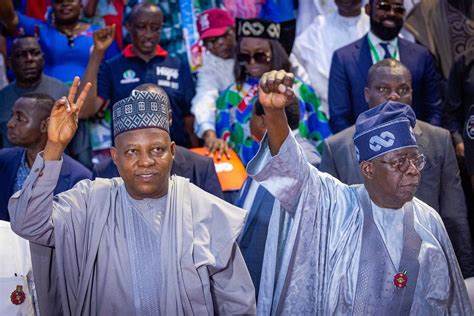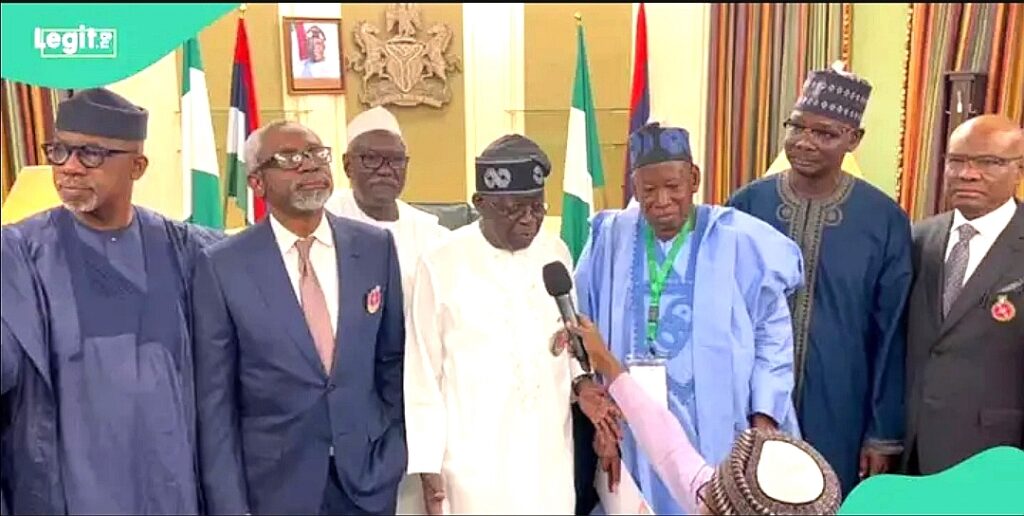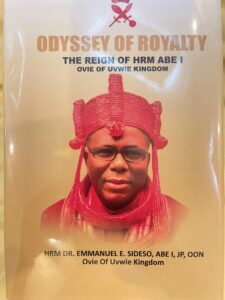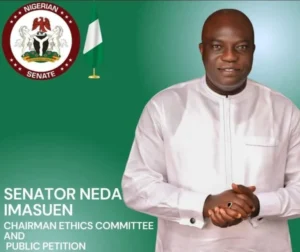Tinubu’s Triumph at Supreme Court: Lesson for Nigerian Politicians

President Tinubu (R), VP Shettima (file photo)
By Editorial Board
The Supreme Court of Nigeria today October 26, 2023, upheld the election of Mr. Bola Ahmed Tinubu as the duly elected president in the last presidential election.
In doing so, the Justices in a unanimous decision held that the INEC Result Viewing Portal (IREV) deployed by the Independent National Electoral Commission (INEC) for the 2023 General Election is not a collation system.
In the judgement that was read by Justice Inyang Okoro, ruled that failure to transmit election results electronically on IREV did not affect the election results.
“The court below held that the IREV is not a collation system, and I agree. The unavailability of the INEC results on the portal cannot be a ground for the election to be nullified.

President Tnubu speaks to the media after the Supreme Court judgement. (Phot Credit: @DOlusegun, X)
“It is my well considered opinion that the failure to transmit results to the IREV, did not affect the result of the election.
“The IREV portal is not a collation system. Where the IREV portal fails, it does not stop the collation of results. This issue is resolved in favour of the respondents,” Justice Okoro said.
The court also dismissed the argument of Atiku Abubakar that Tinubu’s victory should be nullified because of his failure to score 25% of the votes cast in Abuja, the Federal Capital Territory.
On the motion filed by Atiku Abubakar seeking to file fresh evidence, specifically the weightless Chicago State University (CSU) deposition by Caleb Westberg on records of President Bola Tinubu.
After determining the merit of the motion by Abubakar and the PDP to supply fresh evidence in the form of documents obtained from CSU on President Tinubu’s academic records, the seven-man panel dismissed the entire exercise as wasteful.
Supreme Court said that in determining the merit of the motion to file fresh evidence, the court will ascertain whether the nation’s law allows the court to accept fresh evidence at this stage.
Delivering judgement, Okoro said Okoro said the time fixed for tendering of evidence has passed and cannot be extended.
“The 180 days imposed for hearing of election petitions is immutable and cannot be extended.
“The application, my lord is hereby refused and dismissed”, Okoro stated.
On a general note, the court said the failure by Atiku to present alternative result where he won to dispute INEC’s result, makes nonsense of his allegation of vote rigging.
The court also held that the deposition of CSU was unnecessary. What was needed was a simple letter by CSU management on their letterhead paper, denying the certificate that Tinubu presented to INEC.
In retrospect, lawyers of Atiku Abubakar led him to an unnecessary journey to nowhere, without considering the objective of their mission.
It is commonsense that, before you dispute any election results, there must be a supposedly ‘authentic result’. The justices are not trained mathematicians that should tabulate and collate results on behalf of petitioners.
Atiku’s lawyers also failed to admit that the deposition by CSU registrar, Caleb Westberg was in no way in favour of their client.
Going through the transcript of the deposition, it was obvious that the university admitted that President Tinubu attended and graduated with honours from CSU.
The only honourable step that was left for Atiku after his wild goose chase to Chicago, was to remain silent on the outcome of his findings.
In the circumstances of the Supreme Court judgement, Atiku lawyers and those of the Peoples Democratic Party (PDP) should be questions and sanctioned for poor handling of Atiku’s case.









